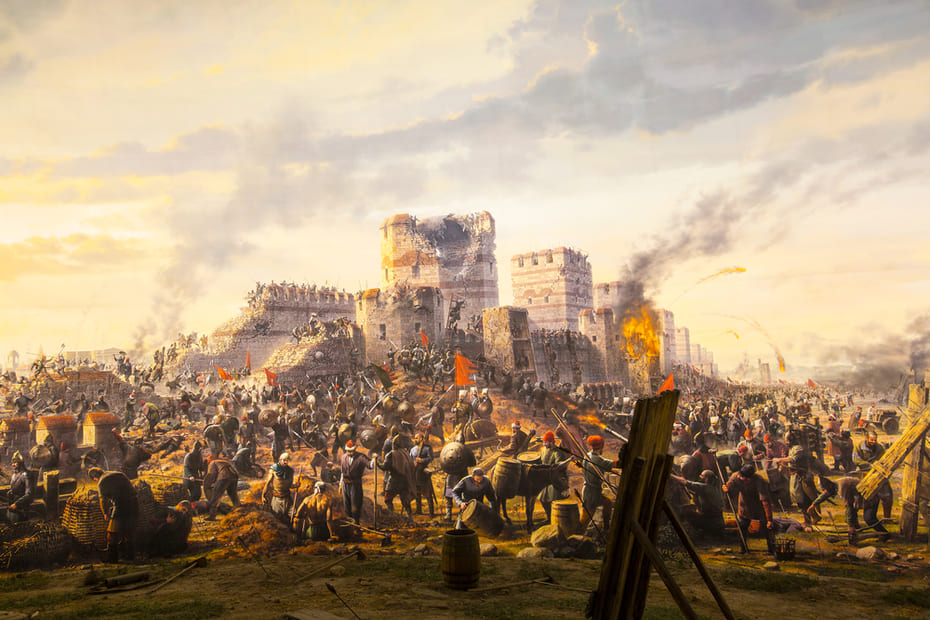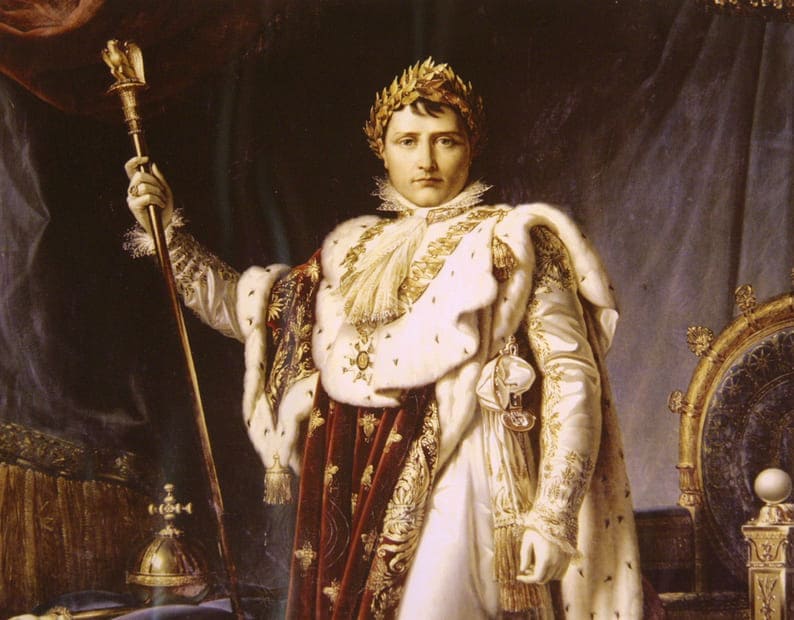History is vast, with pivotal moments that have shaped our world and defined generations. From revolutions that birthed nations to scientific discoveries that changed how we perceive the universe, certain dates stand out as beacons of change, progress, and, sometimes, cautionary tales. In this article, we will get into the most significant dates that have left an indelible mark on the annals of history.
Whether triumphant or tragic, these moments provide a glimpse into the events that have sculpted the contours of human civilization.
Table of Contents
509 BC: The Founding of the Roman Republic

In 509 BC, the last Etruscan king, Tarquin the Proud, was overthrown, leading to the establishment of the Roman Republic. This new system of government introduced the Senate, a body of lifelong legislators, and two consuls, elected annually, who held executive power. The checks and balances of this system, as well as the idea of representative government, heavily influenced the development of democratic governance, especially in the formation of the United States’ constitution. The Republic stood for nearly five centuries until internal strife and external pressures led to its transformation into the Roman Empire under Augustus Caesar in 27 BC.
September 28, 480 BC: Battle of Salamis

The Battle of Salamis was a turning point in the Greco-Persian Wars. After the Persians sacked Athens, the combined Greek fleet, under the strategic command of Themistocles of Athens, lured the Persian navy into the narrow straits of Salamis. The Greeks, with their smaller and more maneuverable ships, achieved a decisive victory. This naval battle halted Persian expansion into Europe and preserved the emerging democratic and philosophical ideals of Greece, which would later form the bedrock of Western civilization.
AD 33 (approximate): Crucifixion of Jesus Christ

The crucifixion of Jesus Christ in Jerusalem is one of the most significant events in religious history. Christians believe that Jesus’ death and subsequent resurrection provide salvation to humanity, offering redemption from sin. This event laid the foundation for Christianity, which, over the next two millennia, would grow to become one of the world’s major religions. The teachings of Jesus and the writings of his disciples in the New Testament have profoundly influenced Western art, philosophy, ethics, and law.
October 14, 1066: Battle of Hastings

The Battle of Hastings was a pivotal moment in English history. William, the Duke of Normandy (later known as William the Conqueror), claimed the English throne after the death of King Edward the Confessor. Facing off against King Harold II, William’s Norman forces emerged victorious. This conquest brought Norman-French influences to England, reshaping the English language, architecture, and governance. The Normans introduced feudalism, castles, and many French-derived words that enriched the English vocabulary.
October 12, 1492: Columbus Reaches the Americas

Christopher Columbus, an Italian explorer sponsored by the Spanish monarchs Ferdinand and Isabella, set sail in search of a westward route to Asia. Instead, he landed in the Bahamas, becoming the first European to explore the Americas since the Vikings. His voyages opened the door for other European explorers and settlers, leading to the colonization of the Americas. This Age of Exploration resulted in a massive exchange of goods, ideas, cultures, and even diseases between the Old World (Europe, Asia, Africa) and the New World (the Americas). This period, known as the Columbian Exchange, reshaped global economies, diets, and populations.
July 4, 1776: American Declaration of Independence

On this historic day, representatives from the thirteen American colonies gathered in Philadelphia to sign the Declaration of Independence. Drafted primarily by Thomas Jefferson, this document boldly proclaimed the colonies’ right to self-governance and their separation from British rule. The ideals of liberty, equality, and the pursuit of happiness, as outlined in the Declaration, became foundational principles for the new nation. The subsequent American Revolution saw the colonies fight for and ultimately achieve their independence, establishing the United States of America. This event inspired numerous other independence movements worldwide and introduced a model of democratic governance that many nations would adopt.
June 28, 1914: Assassination of Archduke Franz Ferdinand

In Sarajevo, Bosnia, a young Serbian nationalist named Gavrilo Princip assassinated Archduke Franz Ferdinand of Austria and his wife. This act of violence was the spark that ignited World War I. The intricate web of alliances between major European powers escalated this regional conflict into a full-blown war. Over the next four years, nations across the globe were drawn into the conflict, leading to significant political, territorial, and societal changes. The war’s aftermath saw the collapse of empires the drawing of new national borders, and set the stage for geopolitical tensions that would lead to World War II.
October 29, 1929: The Wall Street Crash

Black Tuesday, as it’s often called, saw stock prices on the New York Stock Exchange plummet, wiping out fortunes overnight. This crash was the most severe in U.S. history and signaled the beginning of the Great Depression. Over the next decade, unemployment soared, businesses shuttered, and global trade collapsed. The economic hardships of this era led to significant political shifts, with many countries turning to radical ideologies, both left and right, in search of solutions. The New Deal in the U.S. and similar programs worldwide were introduced in attempts to alleviate economic suffering.
August 6 & 9, 1945: Atomic Bombings of Hiroshima and Nagasaki

In the final stages of World War II, in an effort to force Japan’s surrender and prevent further casualties from a prolonged war, the United States dropped atomic bombs on the cities of Hiroshima and Nagasaki. The immediate devastation, combined with the lingering effects of radiation, resulted in the deaths of over 200,000 people, mostly civilians. Japan announced its surrender shortly after, bringing World War II to an end. These bombings not only marked the conclusion of a devastating war but also ushered in the nuclear age. The world now had to grapple with the ethical, political, and existential implications of nuclear weapons, leading to the Cold War’s arms race and ongoing global efforts for disarmament.
July 20, 1969: Apollo 11 Moon Landing

In a monumental achievement for humanity, astronauts Neil Armstrong and Buzz Aldrin, part of NASA’s Apollo 11 mission, set foot on the Moon. As Armstrong famously said, it was “one small step for [a] man, one giant leap for mankind.” This event was the culmination of the intense space race between the United States and the Soviet Union during the Cold War. The successful moon landing showcased human ingenuity, determination, and the boundless possibilities of exploration. It inspired generations to dream big and reinforced the idea that with collaboration and innovation, humanity could overcome even the most formidable challenges.
November 9, 1989: Fall of the Berlin Wall

The Berlin Wall, both a physical and symbolic barrier, had divided East and West Berlin since its construction in 1961. It represented the broader division between the communist East and the capitalist West during the Cold War. However, on November 9, 1989, following mounting civil unrest and pressure from the East German populace, the East German government announced that its citizens could visit West Berlin and West Germany. Crowds of euphoric East and West Germans climbed onto the wall, chipping away parts of it as souvenirs, and celebrating together. The fall of the Berlin Wall set the stage for the reunification of Germany and the eventual collapse of the Soviet Union and its satellite states in Eastern Europe. It marked the beginning of the end of the Cold War era.
1453: The Fall of Constantinople

The ancient city of Constantinople (modern-day Istanbul) had been the capital of the Byzantine Empire for over a millennium. Its strategic location between Europe and Asia made it a coveted prize for many empires. In 1453, after a 53-day siege, the Ottoman Turks under Sultan Mehmed II successfully captured the city. This event marked the end of the Byzantine Empire, the eastern continuation of the Roman Empire. The fall of Constantinople also had profound implications for Europe. It led to the end of the Silk Road’s land routes, prompting European powers to seek sea routes to Asia, which in turn kickstarted the Age of Exploration. The Ottoman Empire, with Constantinople as its capital, would go on to become one of the world’s dominant powers for the next several centuries.
1789-1799: The French Revolution

Beginning in 1789, the French Revolution was a decade-long period of radical political and societal change in France. Fueled by widespread economic hardship and inspired by the American Revolution, the French populace overthrew the monarchy, leading to the execution of King Louis XVI. The revolution introduced ideas of liberty, fraternity, and equality. It culminated in the rise of Napoleon Bonaparte, who would later declare himself Emperor of the French. The revolution’s principles and the Napoleonic wars that followed spread these ideas across Europe, challenging the old feudal systems and absolute monarchies.
1963: Martin Luther King Jr.’s “I Have a Dream” Speech

On August 28, 1963, during the March on Washington for Jobs and Freedom, Dr. Martin Luther King Jr. delivered his iconic “I Have a Dream” speech from the steps of the Lincoln Memorial. This speech became a defining moment in the American Civil Rights Movement. King’s vision of a nation where people “will not be judged by the color of their skin but by the content of their character” resonated deeply, galvanizing support for racial equality and civil rights legislation. The following year, the Civil Rights Act of 1964 was signed into law, outlawing discrimination based on race, color, religion, sex, or national origin.
2001: September 11 Terrorist Attacks

On September 11, 2001, a series of coordinated terrorist attacks by the Islamic extremist group al-Qaeda took place on U.S. soil. Hijackers took control of four commercial airliners, crashing two into the Twin Towers of the World Trade Center in New York City and another into the Pentagon. The fourth plane, United Airlines Flight 93, crashed into a field in Pennsylvania after passengers attempted to overcome the hijackers. Nearly 3,000 people died in the attacks. This tragic event had profound implications for the U.S. and the world. It led to the U.S. launching the War on Terror, including the wars in Afghanistan and Iraq, and resulted in significant changes to U.S. policy and security measures, including the creation of the Department of Homeland Security and the implementation of the USA PATRIOT Act.








